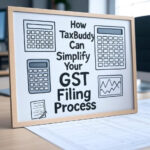What to Know About Filing Taxes for Freelancers and Self-Employed Individuals
Freelancers and self-employed individuals play a crucial role in the economy, offering flexibility, independence, and unique services to a variety of clients. However, with these freedoms come responsibilities—one of the most important being income tax filing. Unlike salaried employees, freelancers and self-employed individuals have to manage their own taxes, which can often feel overwhelming if you’re not well-prepared.
In this article, we’ll break down the income tax filing process for freelancers and self-employed individuals, explaining everything from tax obligations to deductions and filing tips. Whether you’re a first-time filer or a seasoned professional, this guide will help you understand how to manage your taxes effectively.
1. Understanding Your Tax Obligations as a Freelancer or Self-Employed Individual
As a freelancer or self-employed individual, you are essentially running your own business. This means you are required to file taxes as a business rather than as an employee. The Income Tax Act of India treats income from freelancing or self-employment as business income, which is subject to regular tax rules.
Some key things you should know:
● Taxable Income: Freelancers and self-employed individuals are taxed on their net income, i.e., the total income earned minus any eligible business expenses.
● Advance Tax: Unlike salaried employees, freelancers are not subject to TDS (Tax Deducted at Source). Instead, you are responsible for paying advance tax on a quarterly basis if your estimated tax liability exceeds ₹10,000 in a year.
● GST: If your annual turnover exceeds the prescribed limit, you will need to register for GST and comply with its regulations.
2. Choosing the Right Income Tax Form for Freelancers and Self-Employed Individuals
The first step in income tax filing is selecting the appropriate form. As a freelancer or self-employed individual, you will typically file your taxes using:
● ITR-3: If you are a freelancer or have income from a profession (like a chartered accountant, doctor, lawyer, etc.), you will need to file ITR-3. This form is for individuals who earn income from a profession or business.
● ITR-4 (Sugam): If you opt for the presumptive taxation scheme under Section 44ADA, you may file using ITR-4. This scheme is available for professionals with gross receipts up to ₹50 lakh and who don’t want to maintain detailed books of account.
3. Calculating Your Taxable Income
For freelancers and self-employed individuals, calculating taxable income involves adding up all forms of income received, such as:
● Fees for services rendered
● Consulting fees
● Project-based income
Once you’ve calculated your total income, you can subtract business expenses to arrive at your net taxable income. These expenses may include:
● Office supplies and equipment
● Internet and phone bills
● Travel expenses related to work
● Home office expenses (if applicable)
Freelancers can also claim deductions under Section 80C for investments in instruments like PPF, EPF, and NSC.
4. Deductions and Exemptions for Freelancers and Self-Employed Individuals
One of the advantages of being a freelancer or self-employed individual is the ability to claim a wide range of deductions and exemptions that can help reduce your taxable income. Some common tax deductions available for freelancers and self-employed individuals include:
● Section 80C: This section allows deductions up to ₹1.5 lakh for investments in PPF, EPF, NSC, tax-saving fixed deposits, etc.
● Section 80D: This allows deductions for premiums paid on health insurance policies, which is especially important for self-employed individuals without employer-sponsored health coverage.
● Section 80G: Deductions for donations to charitable organizations.
● Home Office Expenses: If you work from home, you can claim deductions for a portion of your rent, electricity bills, internet charges, and other associated costs under Section 37.
These deductions can help reduce your tax liability, so it’s essential to track your expenses and maintain proper records.
5. Paying Advance Tax for Freelancers and Self-Employed Individuals
Since freelancers and self-employed individuals don’t have an employer deducting tax at source (TDS), they are responsible for paying advance tax in four installments throughout the year. The due dates for advance tax payments are as follows:
1. 15th June: 15% of total tax liability
2. 15th September: 45% of total tax liability
3. 15th December: 75% of total tax liability
4. 15th March: 100% of total tax liability
If your total tax liability for the year is below ₹10,000, you do not need to pay advance tax. 6. Filing Your Income Tax Return (ITR)
Once you’ve calculated your taxable income and made any necessary payments of advance tax, it’s time to file your income tax return (ITR). Here’s how to go about it:
● Document Preparation: Collect all necessary documents, such as Form 16 (if applicable), business expense receipts, bank statements, and the interest certificate from your lender (if you have a home loan).
● Choose the Correct ITR Form: As mentioned earlier, freelancers typically use ITR-3 or ITR-4.
● Online Filing: The income tax filing process can be completed online via the Income Tax Department’s e-filing portal or through an authorized platform like TaxBuddy. The portal allows you to upload your details, calculate taxes, and file your return
electronically.
7. Importance of Maintaining Accurate Records
As a freelancer or self-employed individual, it is crucial to maintain accurate financial records. This includes keeping track of invoices, receipts, business expenses, and all other related documents. Proper record-keeping can help ensure that:
● You don’t miss any potential deductions.
● You are prepared in case of an income tax audit.
● You can easily calculate your taxable income and file your return on time.
8. Common Mistakes to Avoid While Filing Taxes
There are several common mistakes that freelancers and self-employed individuals make when it comes to income tax filing. Some of these include:
● Underreporting Income: It’s important to report all income accurately to avoid penalties.
● Not Paying Advance Tax: If your total tax liability exceeds ₹10,000, remember to pay advance tax on time.
● Missing Deductions: Make sure you claim all possible deductions, such as expenses related to your freelance work or self-employment.
9. Filing Tax Returns Through TaxBuddy
Using a tool like TaxBuddy simplifies the income tax filing process for freelancers and self-employed individuals. The platform helps you:
● Choose the right ITR form.
● Calculate your taxable income and deductions.
● File your return accurately and on time.
With TaxBuddy, freelancers can file their taxes confidently without worrying about missing any deductions or penalties.
Conclusion
Filing taxes as a freelancer or self-employed individual might seem daunting at first, but with proper planning and understanding of your obligations, the process can be smooth and straightforward. By following the steps outlined above, you can ensure that your income tax filing is accurate and timely. Remember to keep track of your income, expenses, and potential deductions, and consider using platforms like TaxBuddy to simplify your income tax filing. With the right approach, you can make the most of the available tax benefits and avoid any surprises when it’s time to file your taxes.






